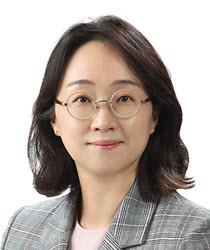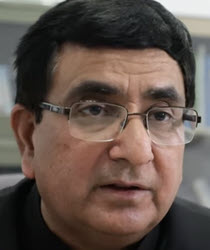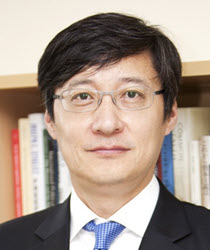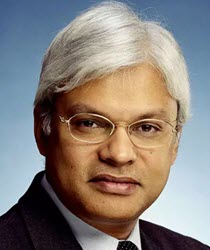Contributors to Strategic Asia (Nov 2023)
Strategic Asia: Reshaping Economic Interdependence in the Indo-Pacific examines shifts occurring in the global trading system and their implications for the strategic environment in Asia. Each chapter explores developments in goods, services, and finances, assesses the extent to which key countries and regions are decoupling from China, and evaluates the consequences for regional and global politics.
Victor A. Ferguson

Victor A. Ferguson is a JSPS Postdoctoral Research Fellow in the Research Centre for Advanced Science and Technology at the University of Tokyo. He studies issues at the intersection of international political economy, global governance, and international security. He received his PhD from the School of Politics and International Relations at the Australian National University’s Research School of Social Sciences.
Benjamin Herscovitch

Benjamin Herscovitch is a Research Fellow in the School of Regulation and Global Governance at the Australian National University (ANU). His primary areas of research are Australia-China relations, China’s economic statecraft, and Australian foreign and defense policy. Prior to joining ANU, Dr. Herscovitch was an analyst and policy officer in the Australian Department of Defence, specializing in China’s external policy and Australia’s defense diplomacy. He was previously a researcher for Beijing-based thank tanks and consultancies.
Hyo-young Lee

Hyo-young Lee is an Associate Professor at the Korea National Diplomatic Academy (KNDA). Before joining the KNDA in March 2017, she worked as a research fellow at the Korea Institute for International Economic Policy in the Division of International Trade from 2013 to 2016 and as assistant secretary for trade, industry, and energy at the Presidential Office from 2014 to 2015. Her research interests span various issues in international trade, with a particular interest in trade rules on industrial subsidy policies, trade and national security, and digital trade. Dr. Lee’s recent publications include the reports “Economic Security: Concept and Recent Trends” (2022), “Evolution and Evaluation of International Rules on Digital Trade” (2021), “Current Trends and Prospects for Asia Regional Economic Integration: Comparison of RCEP and CPTPP” (2021), and “Regulation of Subsidies and U.S.-China Strategic Competition” (2020). She obtained her PhD in international studies at the Seoul National University, majoring in international trade law and policy.
Darren J. Lim

Darren J. Lim is a Senior Lecturer in the School of Politics and International Relations at the Australian National University. His major research interests focus on geoeconomics (including economic coercion and technology competition), grand strategy in the context of power transitions and international order, and the Indo-Pacific region. He also hosts a podcast on Australian foreign policy called Australia in the World. Dr. Lim received his PhD from the Princeton School of Public and International Affairs at Princeton University. Initially trained in law and economics, he previously worked as associate to the Chief Justice of the Federal Court of Australia, a corporate lawyer, and a researcher at the International Crisis Group.
Syaru Shirley Lin

Syaru Shirley Lin is Founder and Chair of the Center for Asia-Pacific Resilience and Innovation, Research Professor at the Miller Center of Public Affairs at the University of Virginia, Adjunct Professor at the Chinese University of Hong Kong, and a Nonresident Senior Fellow in the Foreign Policy Program at the Brookings Institution. Previously, she was a partner at Goldman Sachs, responsible for private equity investments in Asia and led the first round of institutional investments in Alibaba and Semiconductor Manufacturing International Corporation. She currently serves as a director of Langham Hospitality Investments, Goldman Sachs Asia Bank, TE Connectivity, and MediaTek. Dr. Lin is the author of Taiwan’s China Dilemma: Contested Identities and Multiple Interests in Taiwan’s Cross-Strait Economic Policy (2016), which was also published in Chinese (2019). She is currently writing a book about economies in the Asia-Pacific caught in the high-income trap, facing problems such as inequality, demographic decline, financialization, climate change, political polarization, and inadequate policy and technological innovation. She earned an MA in international public affairs and a PhD in politics and public administration at the University of Hong Kong and graduated cum laude from Harvard College.
Vikram Nehru

Vikram Nehru is Senior Fellow at the Foreign Policy Institute, Johns Hopkins University School of Advanced International Studies (SAIS), and Honorary Fellow in Exeter College, Oxford University. Between 2016 and 2023, he was distinguished practitioner-in-residence at SAIS, where he taught courses on political economy and development economics with a focus on East, South, and Southeast Asia. Between 2011 and 2016, he served as the chair in Southeast Asian Studies at the Carnegie Endowment for International Peace in Washington, D.C. Prior to that, Dr. Nehru worked at the World Bank, including in a number of senior management positions. His last position there was chief economist and director for poverty reduction, economic management, and private and financial sector development for East Asia and the Pacific. In this capacity, he advised East Asian governments on economic and governance issues, including macroeconomic management, public sector and public financial management, financial and private sector development, sovereign debt management and debt restructuring, and poverty reduction. His articles have appeared in numerous journals, he has contributed to several books, and he has written many op-eds for leading newspapers, journals, and think tanks.
William J. Norris

William J. Norris is an Associate Professor of Chinese Foreign and Security Policy in the Bush School of Government and Public Service at Texas A&M University, where he leads the school’s Economic Statecraft Program and supervises the China Studies concentration. His broad research interests include international relations of East Asia, business-government relations, Chinese foreign and security policy, grand strategy, and international relations theory, particularly the strategic relationship between economics and national security. He earned his PhD from the Security Studies Program in the Department of Political Science at the Massachusetts Institute of Technology and graduated summa cum laude from Princeton University, concentrating in economics and politics.
Gulshan Sachdeva

Gulshan Sachdeva is a Professor and Jean Monnet Chair at the Centre for European Studies in the School of International Studies at Jawaharlal Nehru University in New Delhi. He is also coordinator in the Jean Monnet Centre of Excellence and the editor of the book series Europe- Asia Connectivity (Palgrave Macmillan). Between 2016 and 2021, he was editor-in-chief of the journal International Studies. He headed the Asian Development Bank and Asia Foundation projects on regional cooperation at the Afghanistan Ministry of Foreign Affairs in Kabul. He was also consultant with the International Labour Organization. Dr. Sachdeva has been Indian Council of Cultural Relations Chair on Contemporary India at the University of Leuven, as well as visiting professor at the University of Antwerp, University of Trento, University of Amsterdam, Autonomous University of Barcelona, University of Warsaw, Pompeu Fabra University (Barcelona), Mykolas Romeris University (Vilnius), Corvinus University of Budapest, Institute of Oriental Studies (Almaty), and Institute of Oriental Studies (Moscow). He has contributed more than one hundred research papers in academic journals and edited books. Some of his recent publications include Challenges in Europe: Indian Perspectives (2019) and India in a Reconnecting Eurasia (2016). He holds a PhD in economics from the Hungarian Academy of Sciences in Budapest.
Yul Sohn

Yul Sohn is a Professor in the Graduate School of International Studies (GSIS) and the Underwood International College at Yonsei University and President of the East Asia Institute in Seoul. He served as president of the Korean Association of International Studies in 2019. He also served as dean of the GSIS from 2012 to 2016 and president of the Association for Contemporary Japanese Studies in 2012. Before joining the faculty at Yonsei, Dr. Sohn taught at Chung-Ang University and was a visiting scholar at the University of Tokyo, the University of North Carolina–Chapel Hill, and the University of California–Berkeley. He also was a senior fellow of the Fulbright Foundation, MacArthur Foundation, Japan Foundation, and Waseda University’s Institute for Advanced Studies. Dr. Sohn currently serves as a policy adviser for South Korea’s Ministry of Foreign Affairs, the Northeast Asian History Foundation, and the Korea Foundation. He has written extensively on East Asian international relations, Japanese and East Asian political economy, and public diplomacy. He received his PhD in political science from the University of Chicago.
Alison Szalwinski

Alison Szalwinski is Vice President of Research at the National Bureau of Asian Research (NBR). She provides executive leadership to NBR’s policy research agenda, oversees research teams in Seattle and Washington, D.C., and is a member of the Asia Policy journal’s editorial advisory committee. She is the author of numerous articles and reports and a co-editor of seven volumes in the Strategic Asia series along with Ashley J. Tellis and Michael Wills. Prior to joining NBR, Ms. Szalwinski spent time at the U.S. Department of State and the Center for Strategic and International Studies. Her research interests include U.S. policy toward Asia, especially U.S.- China relations and the importance of great-power competition for U.S. alliances in the region. She holds a BA in foreign affairs and history from the University of Virginia and an MA in Asian studies from Georgetown University’s Edmund A. Walsh School of Foreign Service.
Ashley J. Tellis

Ashley J. Tellis is the Tata Chair for Strategic Affairs and a Senior Fellow at the Carnegie Endowment for International Peace. He has also served as Research Director of the Strategic Asia Program at the National Bureau of Asian Research (NBR) and co-editor of the program’s annual volume since 2004. While on assignment to the U.S. Department of State as senior adviser to the undersecretary of state for political affairs, Dr. Tellis was intimately involved in negotiating the civil nuclear agreement with India. Previously, he was commissioned into the Foreign Service and served as senior adviser to the ambassador at the U.S. embassy in New Delhi. He also served on the U.S. National Security Council staff as special assistant to President George W. Bush and senior director for strategic planning and Southwest Asia. Prior to his government service, Dr. Tellis was a senior policy analyst at the RAND Corporation and professor of policy analysis at the RAND Graduate School. He is the author of Striking Asymmetries: Nuclear Transitions in Southern Asia (2022), Balancing Without Containment: An American Strategy for Managing China (2014), and India’s Emerging Nuclear Posture (2001); the co-author of Interpreting China’s Grand Strategy: Past, Present, and Future (2000); and the co-editor of Getting India Back on Track (2014). He holds a PhD in political science from the University of Chicago.
Kristin Vekasi

Kristin Vekasi is an Associate Professor in the Department of Political Science and the School of Policy and International Affairs at the University of Maine. Her research focuses on trade and investment strategies in changing geopolitical environments and the political risk management of supply chains. Dr. Vekasi specializes in Northeast Asia and has spent years conducting research in China, Japan, and South Korea. Her book Risk Management Strategies of Japanese Companies in China (2019) explores how Japanese multinational corporations mitigate political risk in China. Her current research examines how Japan, China, and the United States cooperate and compete to manage complex supply chains in Southeast Asia, focusing on industries essential for the transition to green energy. Dr. Vekasi is a member of the Mansfield Foundation’s U.S.-Japan Network for the Future and was a 2019 National Asia Research Program Fellow with the National Bureau of Asian Research, where she is currently a nonresident fellow. In 2021–22, she was an academic associate at the Harvard University U.S.-Japan Program. She received her PhD in political science from the University of Wisconsin, Madison.
Michael Wills

Michael Wills is Executive Vice President at the National Bureau of Asian Research (NBR). He manages all aspects of NBR’s financial and business operations and serves as secretary to the Board of Directors. His research expertise includes geopolitics, international security, and the international relations of Asia, with a particular interest in China’s relations with Southeast Asia. Mr. Wills is a co-editor of thirteen Strategic Asia volumes as well as New Security Challenges in Asia (2013, with Robert M. Hathaway). Before joining NBR, he worked at the Cambodia Development Resource Institute in Phnom Penh, and prior to that with Control Risks Group, an international political and security risk management firm, in London. He holds a BA (Honors) in Chinese studies from the University of Oxford.


